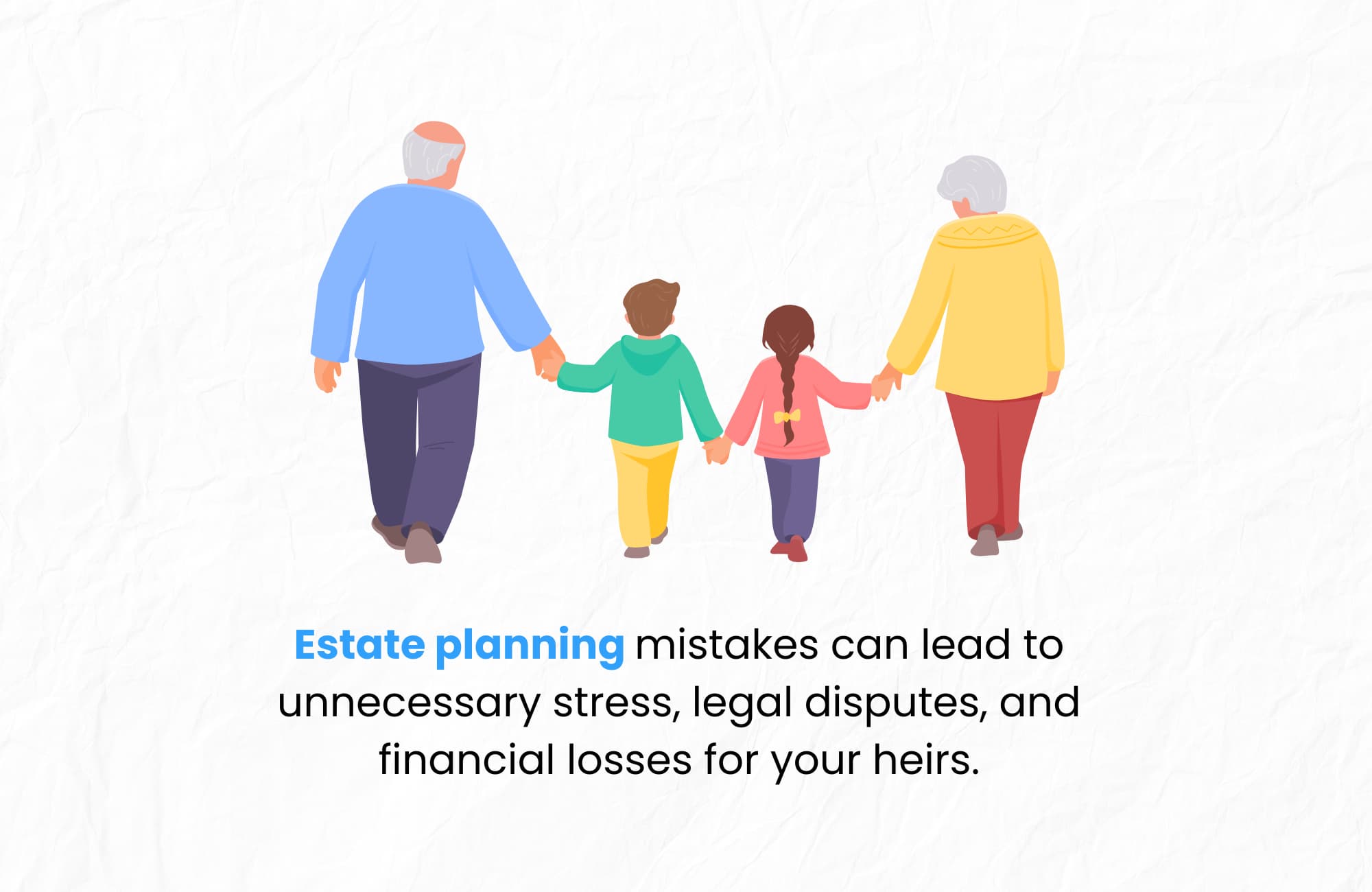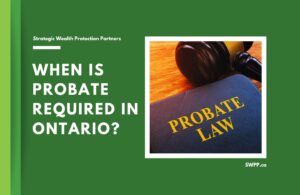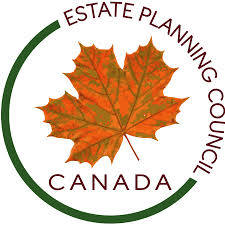Written by Ron Cooke, President & Founder of Strategic Wealth Protection Partners in Ontario, CEA®, Member of the Estate Planning Council Canada
Estate Planning in Ontario
If you’re searching for estate planning in Ontario, you likely want to know what’s involved and how to get started.
Estate planning ensures your assets go to the right people, minimizes taxes, and provides clarity for your loved ones. You might wonder whether you need a lawyer, what it will cost, and how to keep the process simple.
The good news is that with proper planning and guidance, estate matters don’t have to be stressful. This post will walk you through everything you need to create a solid estate plan in Ontario.
That said, if you have a complex estate with multiple properties or large investment accounts, we recommend that you schedule a complimentary call with an estate planning expert. You can save substantial time and money when you work with someone who understands all aspects of estate planning.

Table of Contents
- Estate Planning Basics in Ontario
- Why Does Estate Planning Matter?
- Wills vs. Estate Planning
- How to Choose an Executor for Your Estate
- Trusts to Consider in Ontario Estate Planning
- Estate Taxes and Capital Gains
- Special Considerations for Business Owners
- Estate Planning Basics for Blended Families
- Estate Planning for Digital Assets
- How to Reduce or Avoid Probate in Ontario
- Common Mistakes to Avoid in Estate Planning
- Common Questions about Estate Planning in Ontario
Estate Planning Basics in Ontario
Estate planning is about protecting your loved ones and ensuring your wishes are followed.
A strong estate plan includes a legally valid will, powers of attorney, and strategies for reducing taxes and probate fees. It helps avoid family conflicts and ensures your assets are distributed as intended.
Without a plan, Ontario law decides who gets what, which may not align with your wishes. Understanding the basics will help you take control of your financial future and protect your legacy.
The basics of estate planning in Ontario include the following:
- A legally valid will specifies how your assets will be distributed.
- A power of attorney assigns someone to make financial and medical decisions if you become incapacitated.
- Trusts help manage assets, reduce taxes, and protect beneficiaries. (Not everyone needs a trust. But many families with multiple properties or complex estates would benefit from a trust.)
- Beneficiary designations ensure assets like RRSPs and life insurance go to the intended people.
- Tax planning strategies minimize estate taxes and capital gains.
- Probate reduction strategies help reduce delays and costs associated with probate.
- A named executor is the person responsible for managing your estate and carrying out your wishes.
- Regular updates mean reviewing and adjusting your plan as circumstances change.

Why Does Estate Planning Matter?
A well-prepared estate plan saves your family time, stress, and money.
Without a clear plan, your loved ones may face unnecessary delays, legal costs, and potential disputes. Proper estate planning ensures that your beneficiaries receive their inheritance efficiently and with minimal tax burdens.
It also allows you to appoint decision-makers for your finances and health if you become unable to do so. Taking the time to plan now gives you peace of mind knowing that your affairs are in order.

Wills vs. Estate Planning
A will is just one part of a complete estate plan.
In other words, your will is not your estate plan and will not help you minimize taxes.
While a will directs how your assets are distributed after you pass away, estate planning goes further. It includes powers of attorney, trusts, tax strategies, and ways to avoid probate. A will alone may not fully protect your wealth or ensure your family’s financial security.
A complete estate plan ensures everything is handled according to your wishes while reducing costs and complications for your heirs.
How to Choose an Executor for Your Estate
An executor is responsible for managing your estate after you pass away.
This person should be trustworthy, organized, and capable of handling financial matters. An executor’s duties include paying debts, filing taxes, and distributing assets.
You can choose a family member, friend, or professional, such as a lawyer or trust company. Consider whether your chosen executor is willing and able to take on this responsibility because it can be time-consuming and complex.
Trusts to Consider in Ontario Estate Planning
Trusts help protect assets, reduce taxes, and control inheritance.
They can be used to provide for minor children, support a disabled family member, or ensure wealth is distributed gradually. Common types include family trusts, testamentary trusts, and spousal trusts. A well-structured trust can help you avoid probate fees and provide long-term financial security for your beneficiaries.
Family Trusts
A family trust is a flexible tool to manage and protect assets for multiple generations.
It allows parents to control how and when their children receive their inheritance while potentially minimizing taxes. A family trust can hold investments, real estate, or a business, ensuring wealth stays within the family. It is particularly useful for reducing probate fees and protecting assets from creditors.
Testamentary Trusts
A testamentary trust is created through a will and takes effect after death.
It provides long-term financial management for beneficiaries, especially minors or dependents with special needs. A testamentary trust ensures assets are distributed gradually rather than in a lump sum, reducing financial mismanagement risks. Testamentary trusts also offer tax benefits, as income can be taxed at lower marginal rates.
Spousal Trusts
A spousal trust ensures financial security for a surviving spouse while preserving assets for future heirs.
It allows a surviving spouse to benefit from the assets during their lifetime while ensuring that remaining funds pass to designated beneficiaries, such as children, after their death. This type of trust is particularly useful in blended families and for tax-deferral benefits.
Read More: Essential Guide to Living Trusts in Ontario Guide

Estate Taxes and Capital Gains
Dealing effectively with taxes can help you reduce the financial burden on your heirs.
Ontario does not have an estate tax, but your estate may owe capital gains tax on investments and property. Planning strategies, such as gifting assets or using trusts, can help minimize tax liabilities.
Proper planning ensures your beneficiaries receive more of your estate rather than losing a large portion to taxes.
Understanding Taxes on Your Estate
- Estate Administration Tax (Probate Fees): In Ontario, this is 1.5% on estate assets over $50,000. Assets with named beneficiaries, joint ownership, or held in trusts can bypass probate, reducing fees.
- Capital Gains Tax: When you pass away, the Canada Revenue Agency (CRA) treats your assets as if they were sold at fair market value. This is called a “deemed disposition.” Capital gains tax applies to appreciated assets, such as real estate, investments, and business shares.
- Real Estate: If you own a cottage or rental property, the increase in value from the original purchase price is subject to capital gains tax. If the cottage was bought for $200,000 and is worth $1,000,000 at death, the $800,000 gain is taxable at 50%, meaning $400,000 is added to the estate’s taxable income.
- Non-Registered Investments: Stocks, bonds, and mutual funds held outside RRSPs or TFSAs are subject to capital gains tax if they have increased in value. If $50,000 worth of stocks grows to $100,000, then $25,000 (half of the gain) is taxed.
- Business Shares: If you own a business, shares are deemed sold upon death. However, the Lifetime Capital Gains Exemption (LCGE) may apply, allowing up to $1,250,000 (as of 2024) in tax-free gains for qualified small business shares.
To prevent excessive taxation, you may consider gifting some assets before death, setting up a trust, or donating assets to charity, which can reduce taxes on your estate by providing a tax credit that offsets capital gains.
You may also wish to use life insurance, as life insurance payouts are non-taxable.
Special Considerations for Business Owners
Business owners need a succession plan to protect their company and assets.
Without proper planning, a business may face tax issues, ownership disputes, or even closure. Consider how ownership will transfer, whether to sell or pass the business to family, and tax strategies to reduce financial impacts. You may also wish to consider various types of insurance, such as buy-sell agreements.
Having a clear plan ensures your business continues smoothly after you pass away.
Buy-Sell Agreements for Business Owners
A buy-sell agreement ensures a smooth transition of business ownership in case of death, disability, or retirement.
This legal contract sets out how ownership shares will be transferred and valued, protecting both the departing owner and remaining partners.
It helps prevent disputes and ensures business continuity. Buy-sell agreements are often funded through life insurance to provide financial security for all parties involved. A buy-sell agreement may be a useful estate planning tool if you’re a business owner.

Estate Planning Basics for Blended Families
Blended families require special estate planning considerations to ensure assets are distributed fairly and to protect children from previous relationships.
When a person remarries or has children from different relationships, estate planning becomes more complex. Without careful planning, assets may not be distributed according to your intentions, leading to potential disputes among family members.
Key Considerations for Blended Families:
- Ensure your will reflects your current family structure and clearly outlines your wishes for asset distribution.
- Trusts can help ensure children from a previous marriage receive their inheritance while still providing for a surviving spouse.
- A spousal trust allows a surviving spouse to benefit from assets during their lifetime while preserving wealth for children from a previous marriage.
- Update beneficiary designations on life insurance policies, RRSPs, and pensions to reflect your current wishes.
- Discuss your estate plan with family members to manage expectations and reduce potential conflicts.
Blended families should work with an estate planning expert to create a plan that ensures fairness and minimizes potential disputes.
Estate Planning for Digital Assets
Digital assets such as online accounts, cryptocurrency, and social media profiles need to be included in an estate plan to ensure proper management and access after death.
With more aspects of life moving online, it’s crucial to plan for digital assets just as you would for physical property and financial accounts.
Important Steps for Digital Estate Planning:
- List all digital assets, including email accounts, online banking, social media, and cryptocurrency wallets.
- Ensure a trusted person can access your digital assets by storing login credentials securely.
- Appoint a digital executor if possible. Some provinces, including Ontario, allow for the appointment of a digital executor to manage online accounts.
- Specify how you want digital assets to be managed or transferred.
Failing to plan for digital assets can result in lost financial value and difficulties for loved ones trying to access or close accounts.

How to Reduce or Avoid Probate in Ontario
Probate is a legal process that confirms the validity of a will and grants the executor authority to manage the estate, which may result in delays and additional costs.
To reduce or avoid probate in Ontario, consider these strategies:
- Use joint ownership
- Name beneficiaries
- Establish a trust
- Gift assets during your life
- Use special accounts that pass outside of the estate
Common Mistakes to Avoid in Estate Planning
Estate planning mistakes can lead to unnecessary stress, legal disputes, and financial losses for your heirs.
Failing to update your will after major life changes such as marriage, divorce, or the birth of a child can create unintended consequences and is a common mistake. In addition, many people also overlook tax implications, which can result in higher estate taxes and probate fees.
Finally, ignoring beneficiary designations on registered accounts and insurance policies can lead to assets being distributed contrary to your wishes.
By addressing these potential pitfalls, you can create a comprehensive and effective estate plan that protects your assets and ensures your wishes are followed.

Common Questions about Estate Planning in Ontario
How do I find the right estate planner for my needs?
Look for an experienced estate planner with expertise in Ontario laws.
Check credentials, client reviews, and referrals. A lawyer or financial advisor specializing in estate planning can provide personalized advice. Ensure they understand your needs, including tax strategies, trusts, and wills, for a comprehensive plan.
How much does estate planning cost in Ontario?
Costs vary based on complexity.
A simple will may cost $300–$800, while comprehensive estate plans, including trusts, can range from $1,500 to $5,000 or more. Fees depend on the lawyer’s experience and the services required. Investing in a proper plan helps reduce taxes and legal complications for your heirs.
Can I do estate planning on my own? Or should I seek professional advice?
You can draft a basic will using online tools, but professional advice ensures legal accuracy and tax efficiency.
Estate lawyers and financial planners help with complex matters like trusts, probate avoidance, and tax strategies. Mistakes in DIY planning can lead to costly disputes or unintended consequences for beneficiaries.
What is included in a comprehensive estate plan?
A thorough estate plan includes a will, power of attorney for property and personal care, beneficiary designations, trusts (if needed), and tax strategies.
It ensures assets are distributed as intended, minimizes probate fees, and provides for loved ones, including dependents with special needs or charitable donations.
What is the probate process?
Probate is the court process that validates a will and grants authority to an estate trustee to manage assets.
It involves submitting the will, paying the estate administration tax, and distributing assets. Some assets, like jointly owned property or those with named beneficiaries, bypass probate, reducing costs and delays.
What is an estate trustee?
An estate trustee, also called an executor, is responsible for managing and distributing a deceased person’s estate according to their will.
Duties include paying debts, filing taxes, and distributing assets to beneficiaries. If no will exists, the court appoints an administrator to handle estate affairs following Ontario law.
How does the transfer of property after death work with a will in Ontario?
A will outlines who inherits property.
If probate is required, the estate trustee transfers ownership after paying taxes and debts. Real estate may pass directly to a joint owner or a named beneficiary in a trust, avoiding probate. Without a will, Ontario’s intestacy laws determine distribution.
What other estate planning tools are available to minimize taxes?
Tax-efficient strategies include trusts, gifting assets during your lifetime, naming beneficiaries on registered accounts, and using multiple wills.
Estate freezes can also help transfer business assets tax-efficiently. Consulting an expert ensures your estate plan maximizes tax savings while keeping control over asset distribution.
What is the estate administration tax?
Also known as probate fees, this tax is calculated based on the estate’s value at death.
In Ontario, it’s 1.5% on assets over $50,000. Assets with named beneficiaries or joint ownership bypass probate, reducing fees. Proper planning can help minimize this tax and maximize inheritance for beneficiaries.
Can financial advisors help with estate planning in Ontario?
Yes, financial advisors play a key role in estate planning by helping structure investments, minimize taxes, and ensure smooth wealth transfer.
While they don’t draft legal documents like wills, they coordinate with lawyers and accountants to create a tax-efficient plan that aligns with your financial goals and beneficiaries’ needs.
How can I include charitable donations in my estate plan?
You can leave a charitable gift in your will, set up a donor-advised fund, or establish a charitable trust.
These strategies can reduce estate taxes while supporting causes you care about. Proper planning ensures your donation benefits the charity and aligns with your estate distribution goals.
Discover the Benefits of a Living Trust in Ontario
Are you an Ontario resident considering a living trust as part of your estate planning?
At Strategic Wealth Protection Partners, we’re here to guide you through every step of the process with expert advice and personalized support. Begin your estate planning journey today with a Living Estate Plan Consultation from our experienced team.
Our mission at SWPP is to help you create an estate plan that secures your legacy, shields your assets from unnecessary taxation, and ensures your loved ones are cared for. By designing a living trust tailored to your goals, our experts will help you build a plan that truly reflects your values and priorities.
Take control of your future—start planning today!
Schedule a Living Estate Plan Consultation
Planning your legacy is about more than numbers—it’s about ensuring your family remembers you and your values are honoured for many years to come.
Estate planning and trusts can feel overwhelming, especially if it’s your first time. That’s why we’re here.
With our simple, 5-Step Living Estate Plan, we make the process easy, helping you create a comprehensive estate plan or trust that protects your assets from taxes and probate fees while preserving your legacy. Tools like The Final Word Journal capture your story, wishes, and essential details like accounts and end-of-life plans, ensuring your family has clarity and comfort.
Take the first step today—schedule a consultation call and give your family the ultimate gift: peace of mind and the assurance they were always your priority.
Read More
If you’re starting your estate planning process, you may find these articles helpful:
- Is a Living Trust Better than a Will in Canada?
- Inheritance Tax in Ontario
- What Is the Cost of a Will in Ontario?
- Does Ontario Have a Death Tax?
About the Author
RON COOKE, PRESIDENT & FOUNDER OF STRATEGIC WEALTH PROTECTION PARTNERS

With over 30 years in financial services, I’ve seen the challenges families face when a loved one passes—lost assets, unnecessary taxes, and emotional stress. That’s why I created the Living Estate Plan, a comprehensive process to protect assets, eliminate estate and probate fees, and create legacies that are remembered for many years to come.
This plan ensures your family receives not just your wealth, but a meaningful reminder of your care and love. Tools like The Final Word Journal capture your story, wishes, and essential details, offering clarity and comfort during difficult times.
Your final gift should be more than money—it should be peace of mind, cherished memories, and an organized estate.
Schedule a Call
Schedule a 30-minute consultation call with Strategic Wealth Protection Partners.
Click HERE to schedule a consultation.









